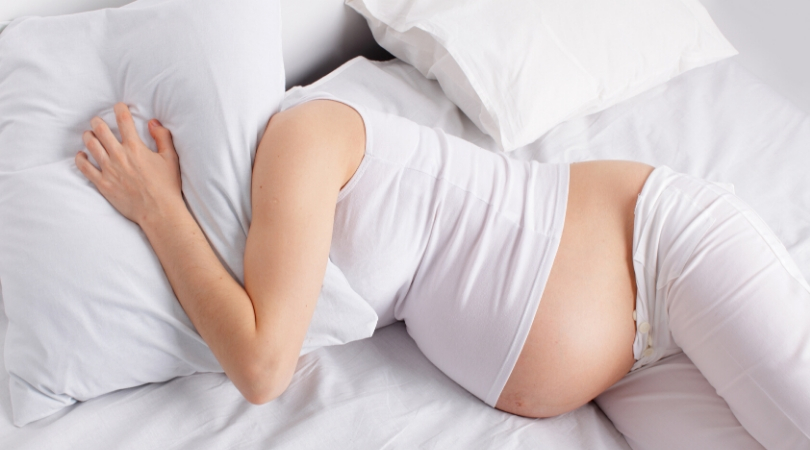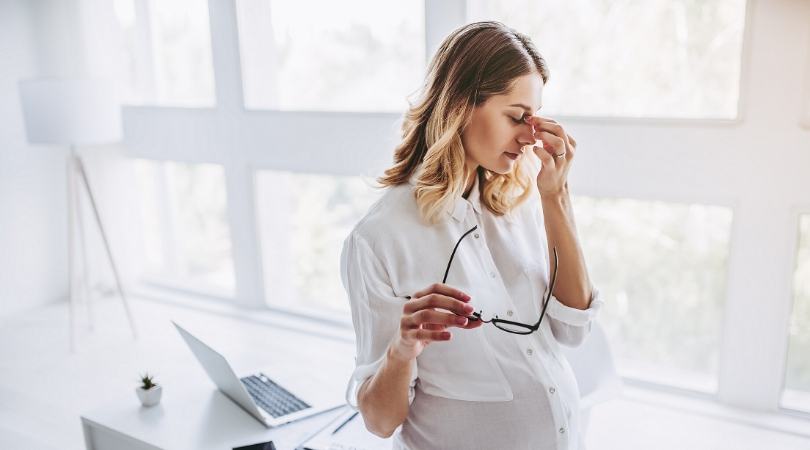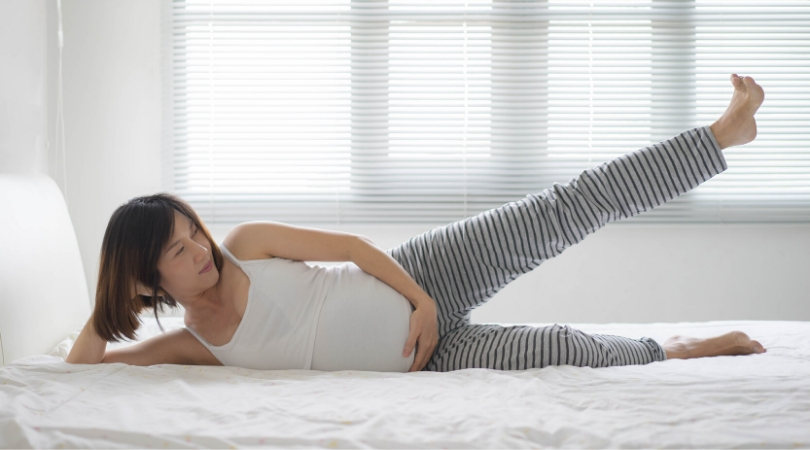Pregnancy is an interesting experience. You will go through a lot of body changes during the course of pregnancy. Here are some of the changes you can expect:
• Breast Size: It isn’t just your breasts; it’s the ribcage as well.
An increase in breast size is one of the first signs of pregnancy. Breasts usually become swollen and enlarged in the first trimester because of increased levels of the hormones estrogen and progesterone. That growth in the first trimester isn’t necessarily the end, either — your breasts can continue to grow throughout your pregnancy!
In addition to the size of your breasts, your bra size may be affected by your rib cage. When you’re pregnant, your lung capacity increases so you can take in extra oxygen for yourself and the baby, which may result in a bigger chest size. You may need to replace your bras several times over the course of your pregnancy.
• Mood Swings: Imagine feeling happy one minute, then suddenly find yourself crying the next.

Mood swings are incredibly common during pregnancy, although they tend to occur more frequently in the first trimester and toward the end of the third trimester. Your breasts swell and become tender, your hormones fluctuate, and you may feel moody. If you suffer from premenstrual syndrome, you’re likely to have more severe mood swings during pregnancy. They can make you go from feeling happy one minute to feeling like crying the next.
About 10% of pregnant women experience depression during pregnancy. If you have symptoms such as sleep disturbances, changes in eating habits and exaggerated mood swings for longer than 2 weeks, you should talk to your doctor.
• Skin Changes: Darker patches at different areas of the skin
Some women develop brownish or yellowish patches called chloasma, or the “mask of pregnancy,” on their faces. And some will notice a dark line on the midline of the lower abdomen, known as the linea nigra (or linea negra), as well as hyperpigmentation (darkening of the skin) of the nipples, external genitalia, and anal region. These are the result of pregnancy hormones, which cause the body to produce more pigment.
The body may not produce this increased pigment evenly, however, so the darkened skin may appear as splotches of color. Unfortunately, chloasma can’t be prevented, but wearing sunscreen and avoiding UV light can minimize its effects. Except for the darkening of the areola, which is usually permanent, these skin changes will likely disappear after you give birth. Many women also experience heat rash, caused by dampness and perspiration, during pregnancy. Skin stretching over the abdomen may cause itchiness and flaking. Your doctor can recommend creams to soothe dry or itchy skin.
• Inability to Concentrate and Forgetfulness

In the first trimester, fatigue and morning sickness can make many women feel worn out and mentally fuzzy. But even well-rested pregnant women may experience an inability to concentrate and periods of forgetfulness.
A preoccupation with the baby is partially the cause, as are hormonal changes. You can combat this forgetfulness by making lists to help you remember dates and appointments.
• Hair and Nails: Sensitive to breakage
Many women experience changes in hair texture and growth during pregnancy. The hormones secreted by your body will cause your hair to grow faster and fall out. But these hair changes usually aren’t permanent; most women lose a significant amount of hair in the postpartum period.
Nails, like hair, can change noticeably during pregnancy. Extra hormones can make them grow faster and become stronger. Some women, however, find that their nails tend to split and break more easily during pregnancy. Like the changes in hair, nail changes aren’t permanent. If your nails split and tear more easily when you’re pregnant, keep them trimmed and avoid the chemicals in nail polish and nail polish remover.
• Larger Shoe Size
Because of the extra fluid in their pregnant bodies, many women experience swelling in their feet and may even have to start wearing a larger shoe size. Wearing slip-on shoes in a larger size will be more comfortable for many pregnant women, especially in the summer months.
• Joint Mobility: Loose ligaments cause you to be prone to injury.
During pregnancy, your body produces a hormone known as relaxin, which is believed to help prepare the pubic area and the cervix for the birth. The relaxin loosens the ligaments in your body, making you less stable and more prone to injury. It’s easy to overstretch or strain yourself, especially the joints in your pelvis, lower back, and knees. When exercising or lifting objects, go slowly and avoid sudden, jerky movements.
• Varicose Veins, Hemorrhoids, and Constipation

Varicose veins, which are usually found in the legs and genital area, occur when blood pools in veins enlarged by the hormones of pregnancy. Varicose veins often disappear after pregnancy, but you can lessen them by:
• avoiding standing or sitting for long periods of time
• wearing loose-fitting clothing
• wearing support hose
• elevating your feet when you sit
Hemorrhoids — varicose veins in the rectum — frequently occur during pregnancy as well. Because your blood volume has increased and your uterus puts pressure on your pelvis, the veins in your rectum may enlarge into grape-like clusters. Hemorrhoids can be extremely painful, and they may bleed, itch, or sting, especially during or after a bowel movement. Coupled with constipation, another common pregnancy woe, hemorrhoids can make going to the bathroom downright unpleasant.
Constipation is common throughout pregnancy because pregnancy hormones slow the rate of food passing through the gastrointestinal tract. During the later stages of pregnancy, your uterus may push against your large intestine, making it difficult for waste to be eliminated. Constipation can contribute to hemorrhoids because straining may enlarge the veins of the rectum.
Eating a fiber-rich diet, drinking plenty of fluids daily, and exercising regularly can help keep bowel movements regular and prevent hemoroids. Stool softeners (not laxatives) may also help. If you do have hemorrhoids, see your doctor for a cream or ointment that can shrink them.
Written by: Dr. Tina I Ureten MD, RDMS, RDCS





 Invite families and friends to witness this memorable event of your pregnancy. Celebrate that special child-bonding moment with your loved ones, wherever they are in the world.
Invite families and friends to witness this memorable event of your pregnancy. Celebrate that special child-bonding moment with your loved ones, wherever they are in the world. There is nothing more beautiful than your baby's heartbeats. Save that sound forever in a UC Baby® Heartbeat Bear®. It's not just a great keepsake, but also an effective way to sooth your baby to sleep.
There is nothing more beautiful than your baby's heartbeats. Save that sound forever in a UC Baby® Heartbeat Bear®. It's not just a great keepsake, but also an effective way to sooth your baby to sleep.

